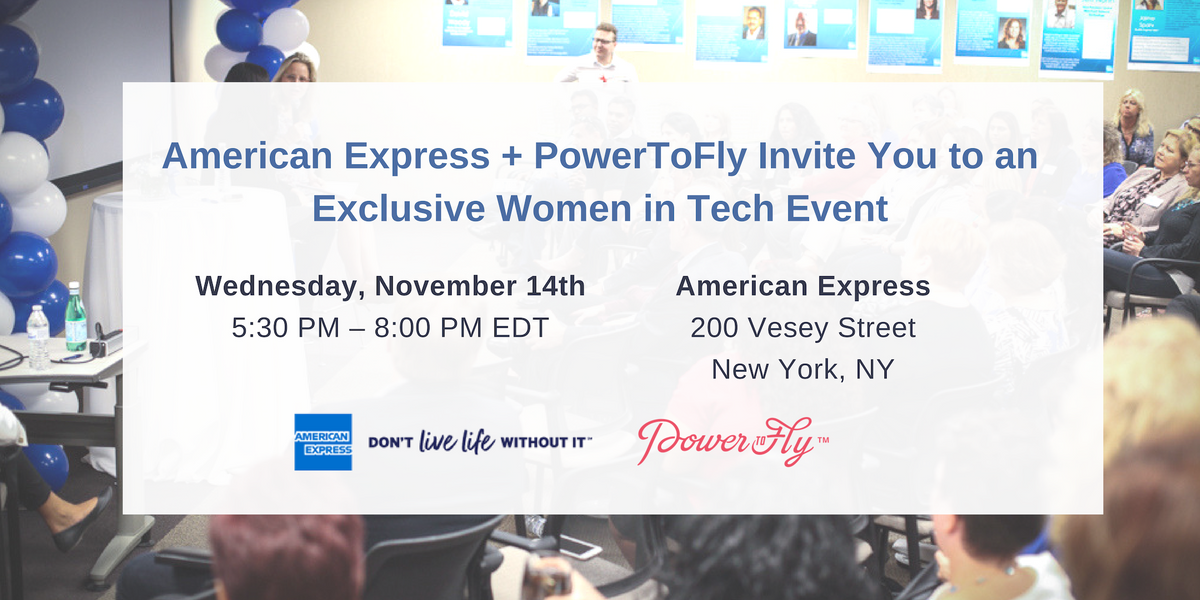PowerToFly has been honored to partner with American Express on two - packed - women in tech events that created lasting connections for attendees - and resulted in hires. This time we're doing an event at American Express in New York City!
Since this is an exclusive, invite-only event, you'll also have the opportunity to network with top women in your field plus team members from American Express and PowerToFly. As a plus, we're offering complimentary headshots from a professional photographer at the start of the evening.
The event will take place on Wednesday, November 14th from 6pm to 8pm (check-in begins at 5:30pm) at 200 Vesey Street, New York, NY.
Agenda (Subject to Change):
- 5:30pm - Check-In & Networking over light food + Complimentary Headshots
- 6:20pm - Kick-Off from PowerToFly
- 6:25pm - Keynote Address with Katrina Roberts, SVP and Unit CIO, Global Commercial Services Technology at American Express
- 6:35pm - Product Demo
- 6:45pm - Panel Discussion featuring from American Express
- Katrina Roberts, SVP and Unit CIO, Global Commercial Services Technology
- John Ahn, Vice President, App Experience Engineering, Tech Strategy and New Initiatives
- Urvashi Tyagi, Vice President of Technology
- Divyangi Anchan, VP, IT Risk and Information Security
- 7:00pm - Audience Q&A
- 7:20pm - Networking over light food
Although this is a networking event (you don't have to be looking for a job to attend), American Express is hiring. Their amazing benefits include up to twenty-six weeks of paid parental leave, flexible work arrangements, healthy living wellness programs, tuition assistance and great medical coverage. Learn more about American Express and their open roles by going to their page on PowerToFly and clicking "follow".
About our Events: All RSVP'd attendees are welcome, regardless of race, color, religion, national origin, gender identity, pregnancy, physical or mental disability, or age. If you require accommodation to fully participate in this event, please email hi@powertofly.com, and we will contact you to discuss your specific needs.
Unfortunately, PowerToFly and the company it is holding an event on behalf of cannot admit outside recruiters to that particular event. Please email hi@powertofly.com if you have any questions about this policy.


